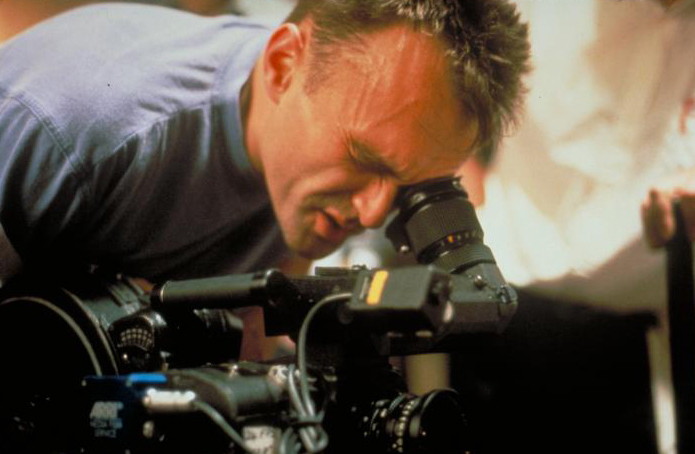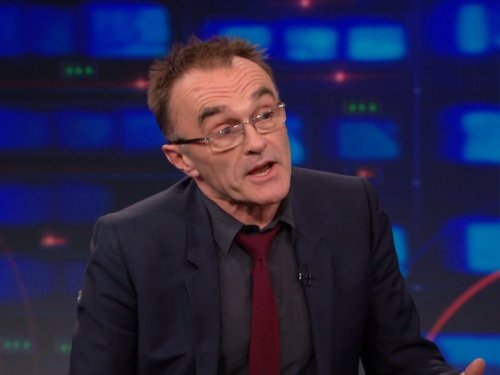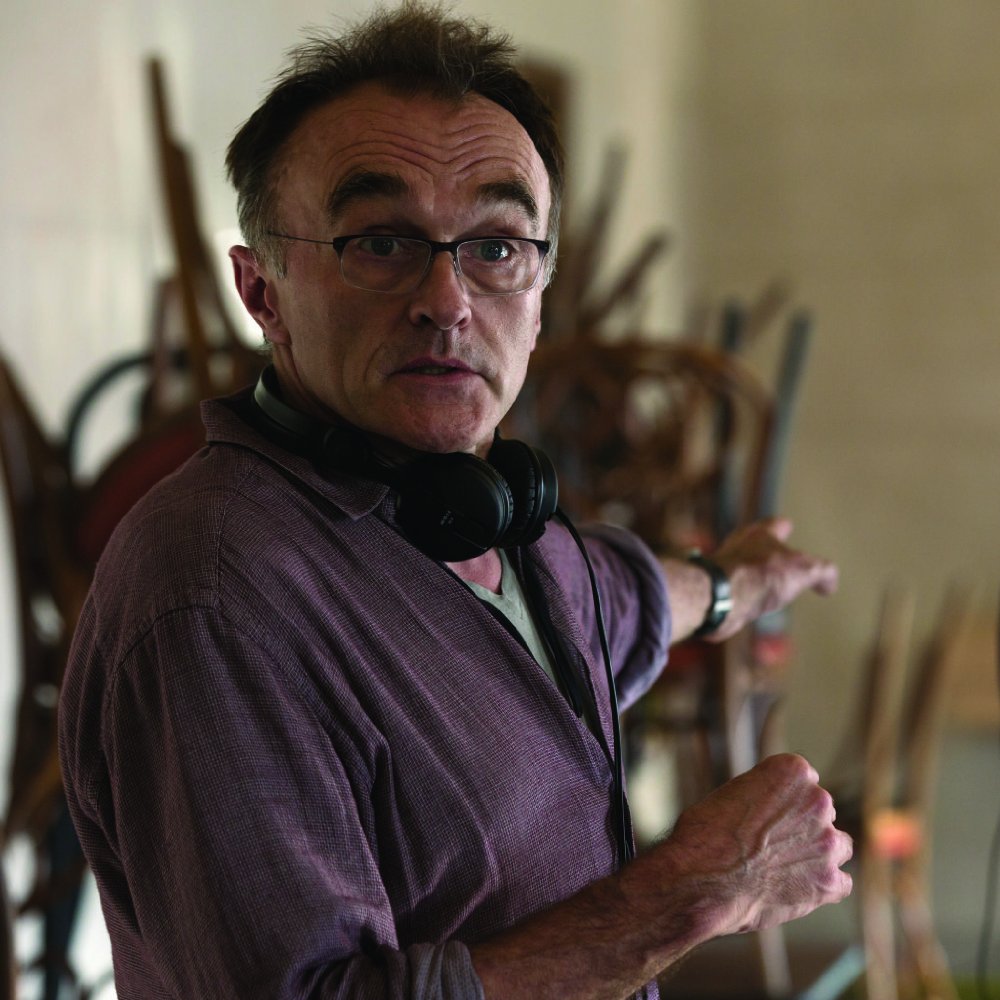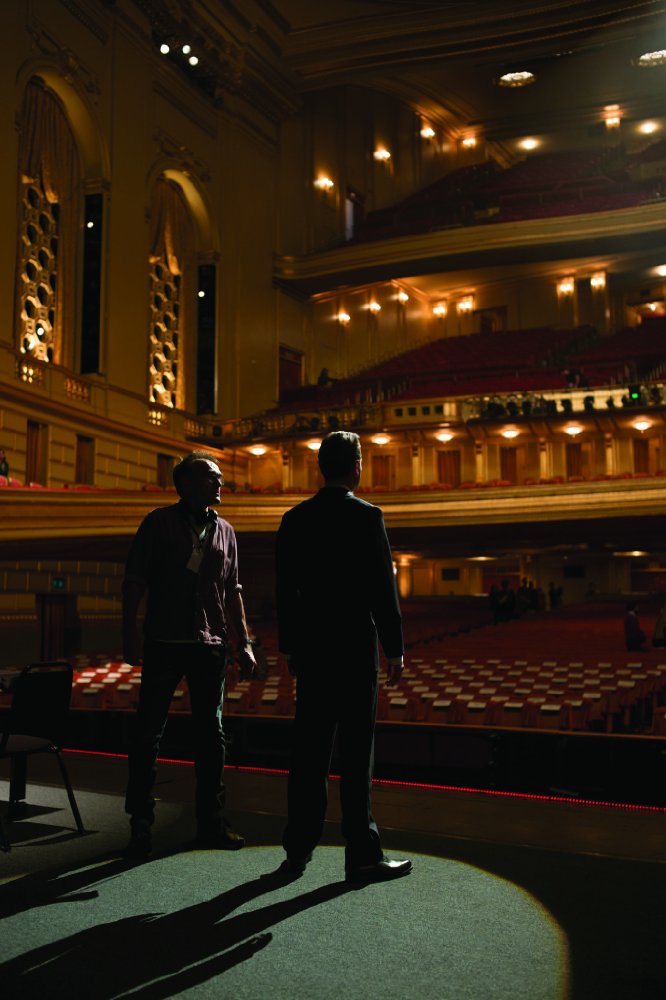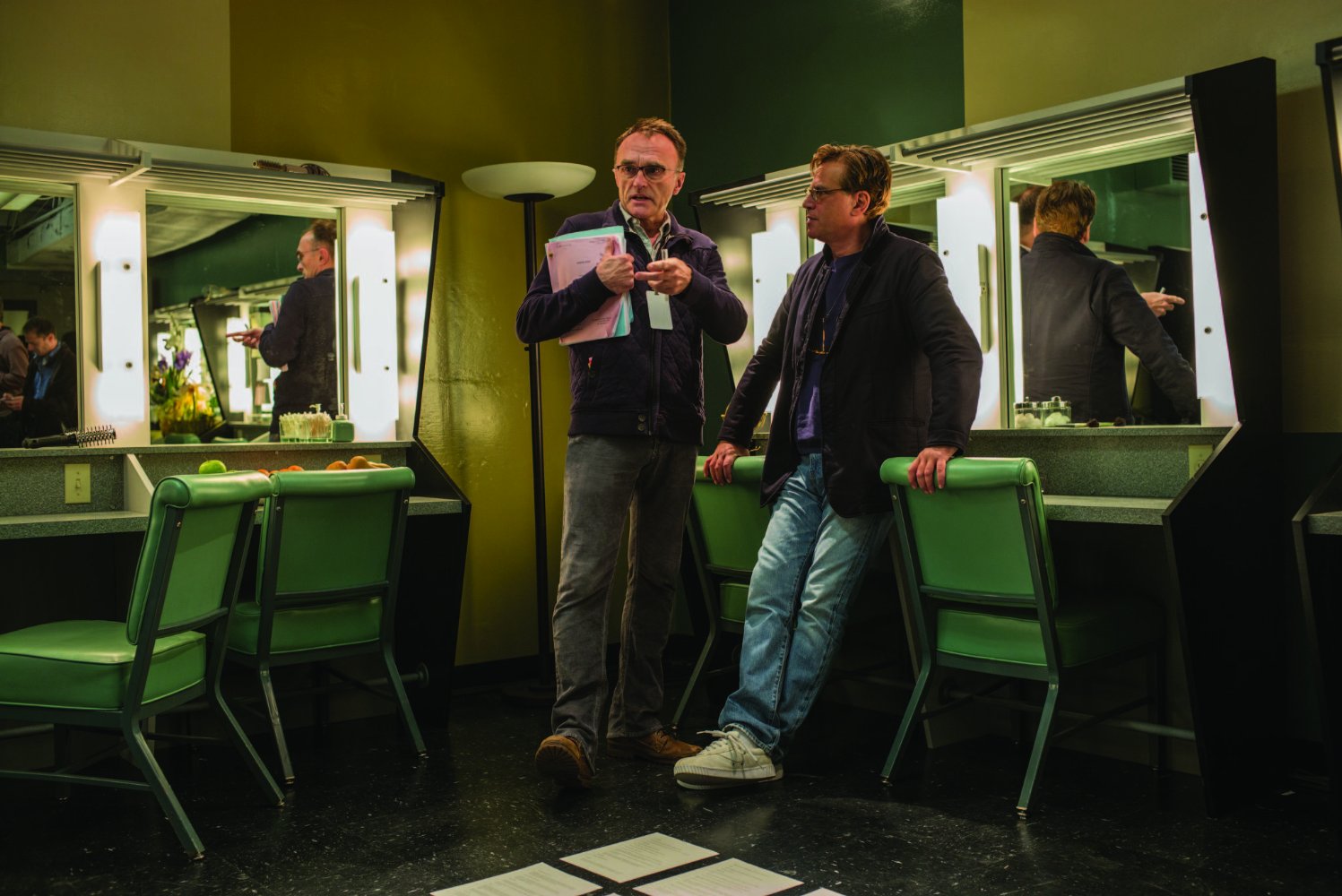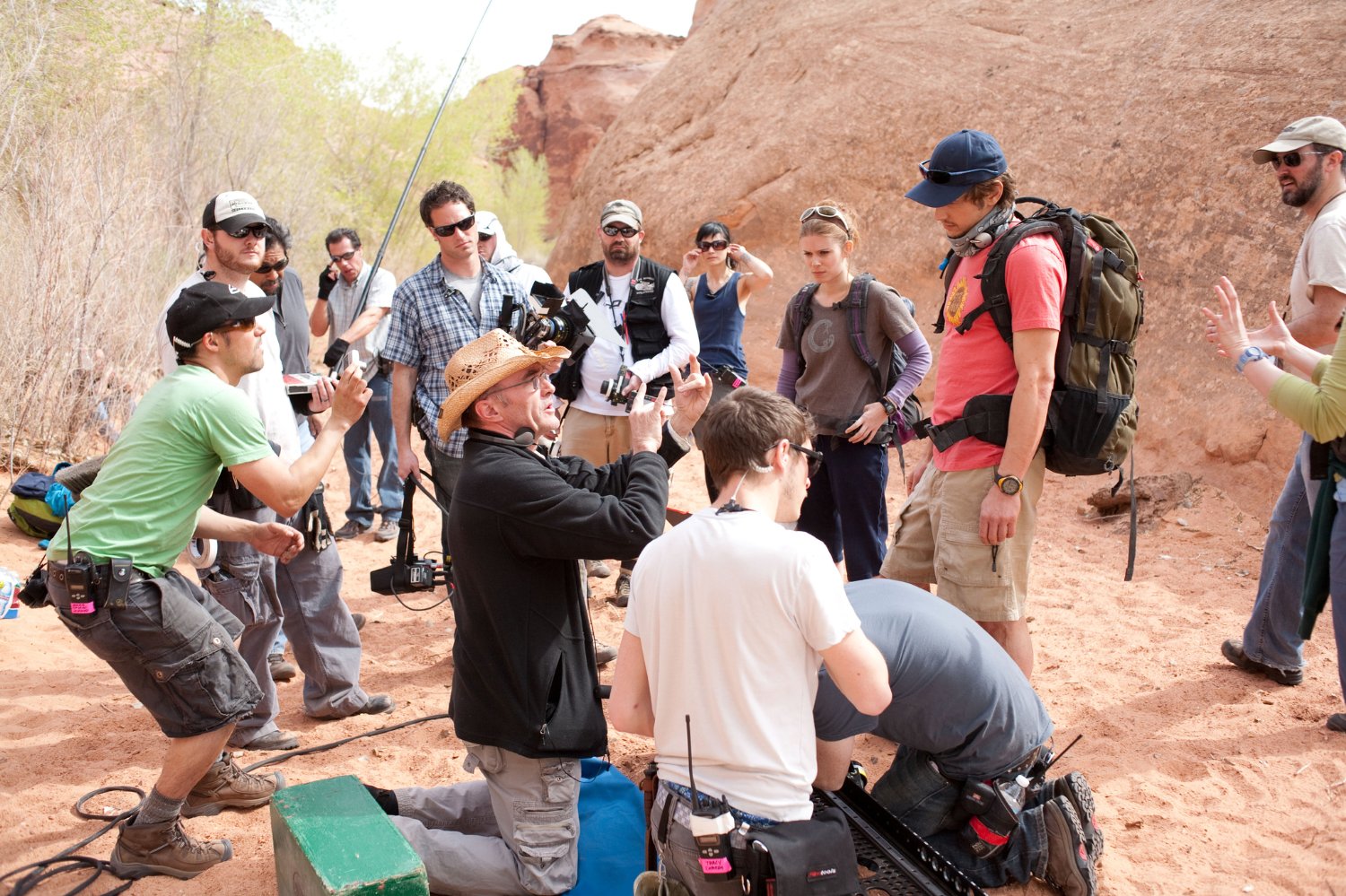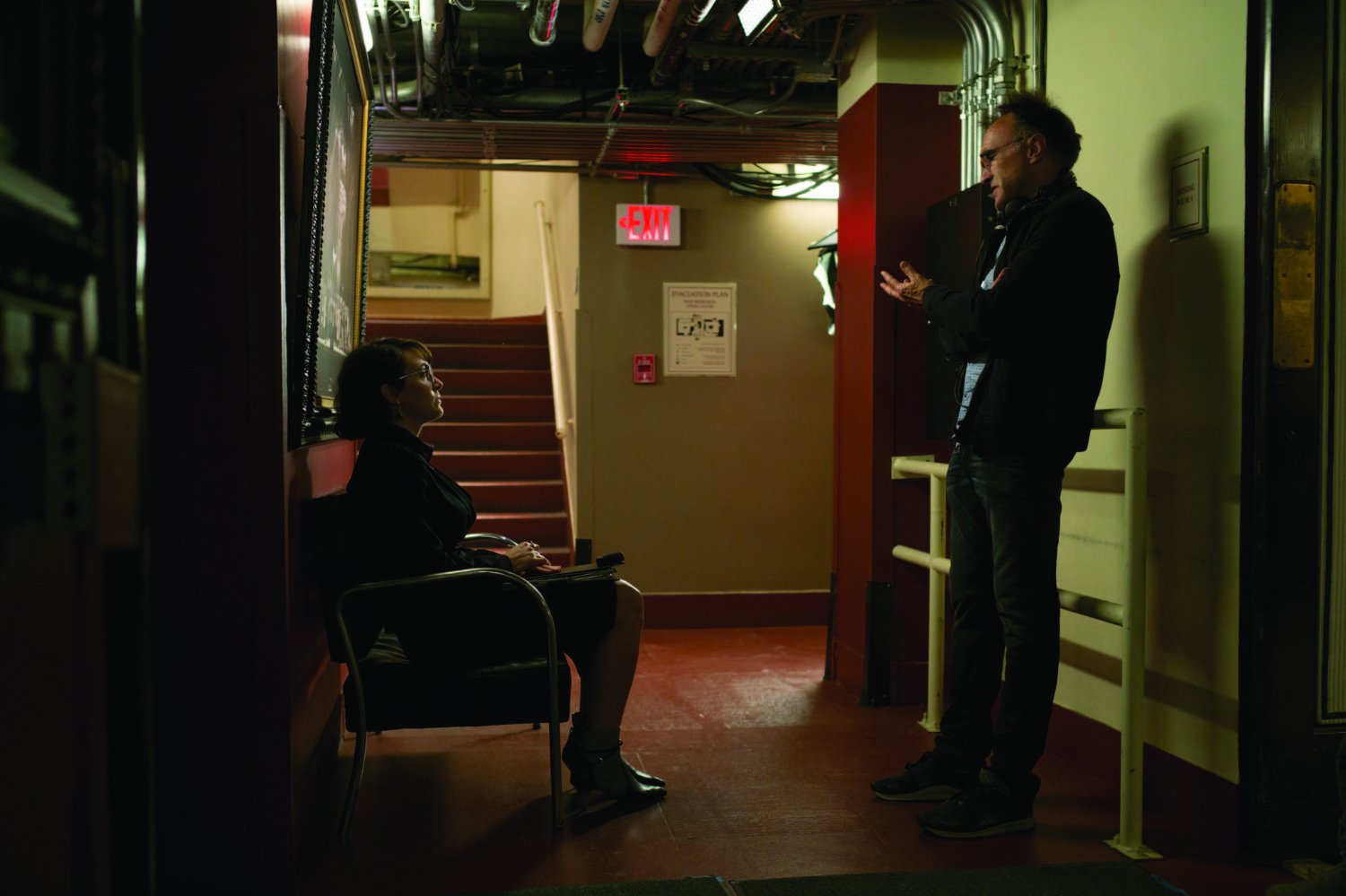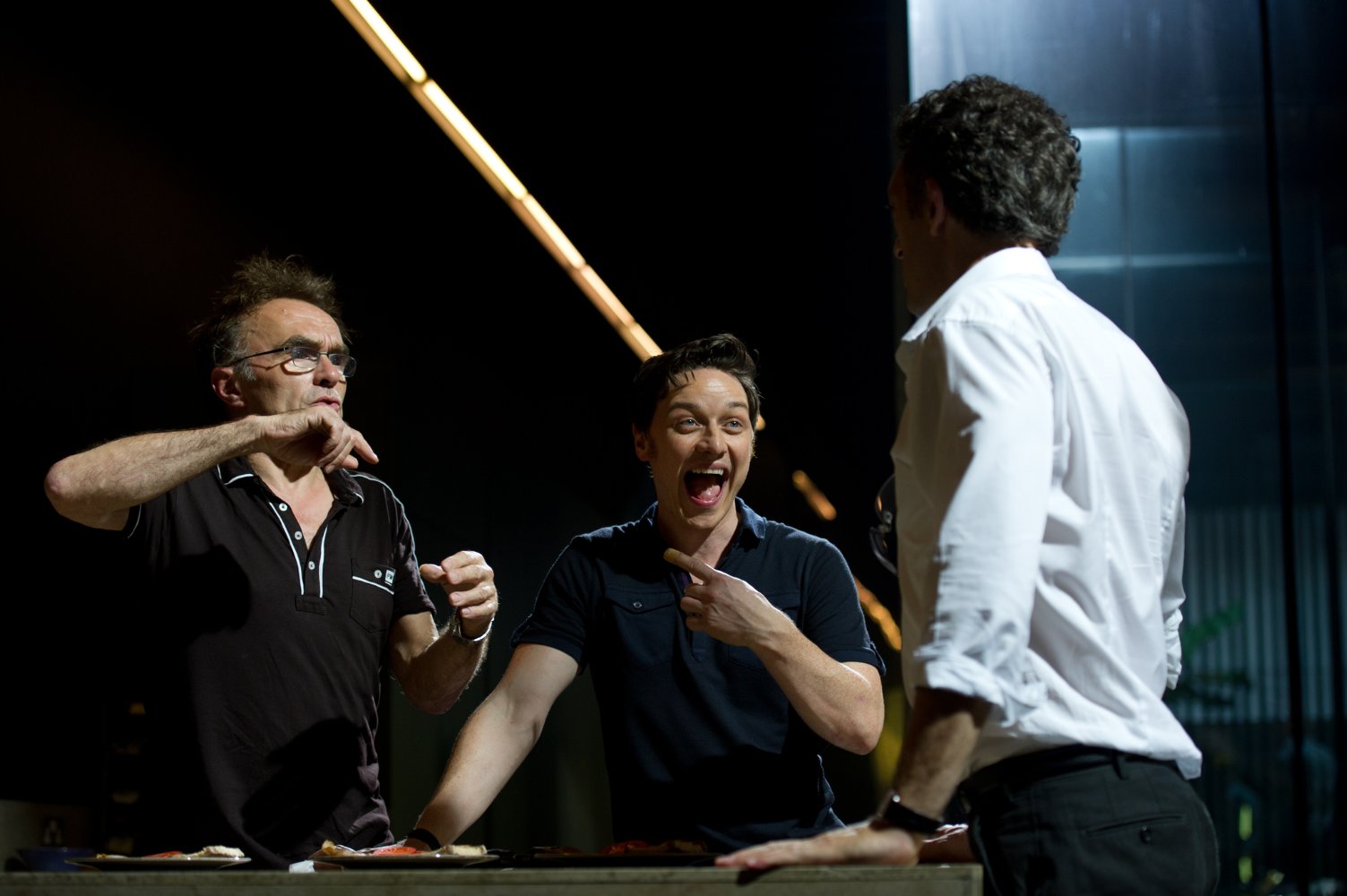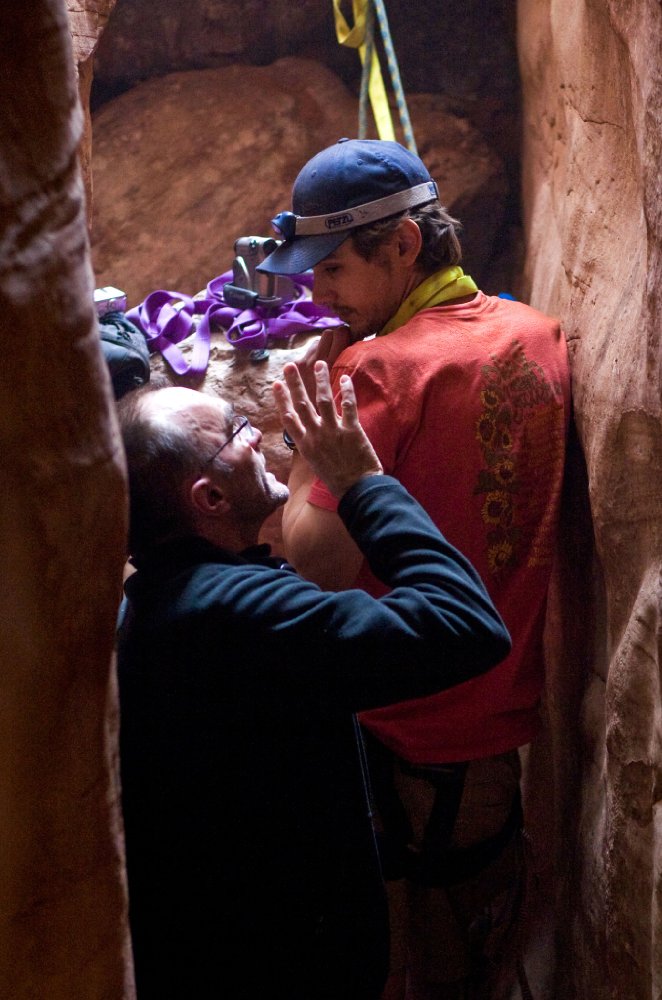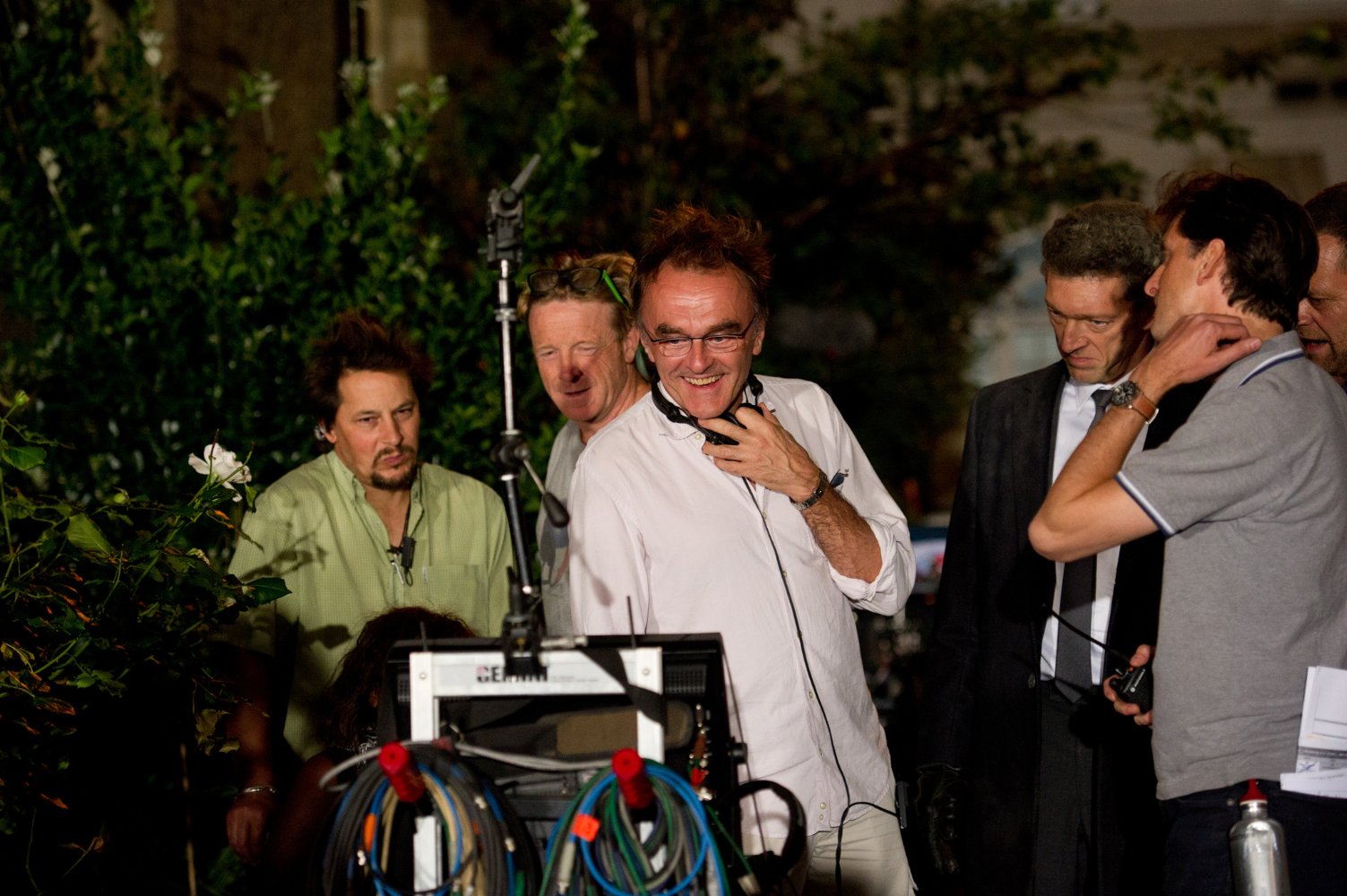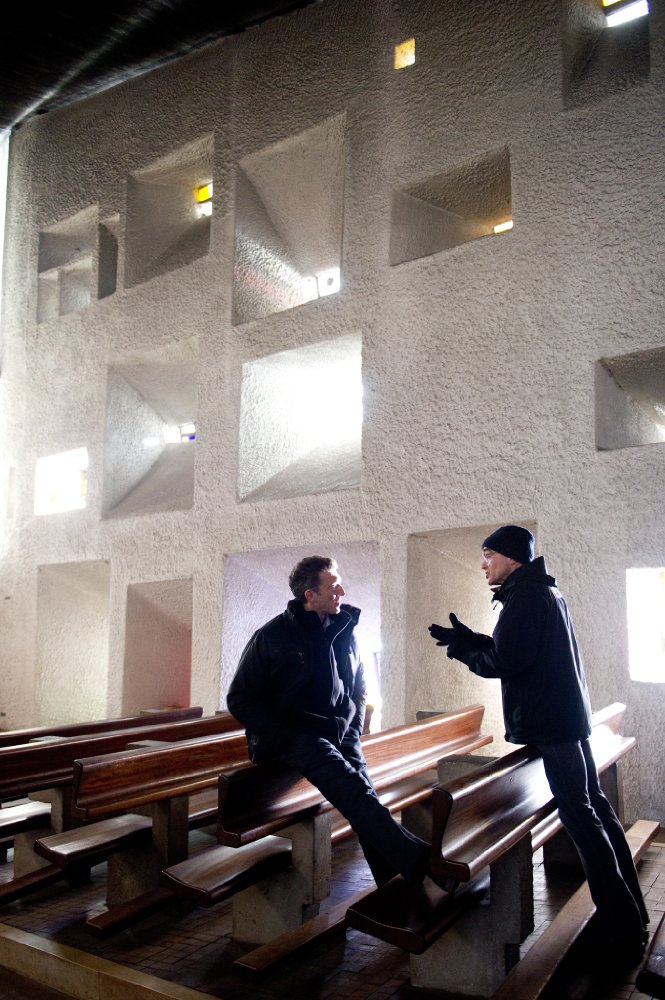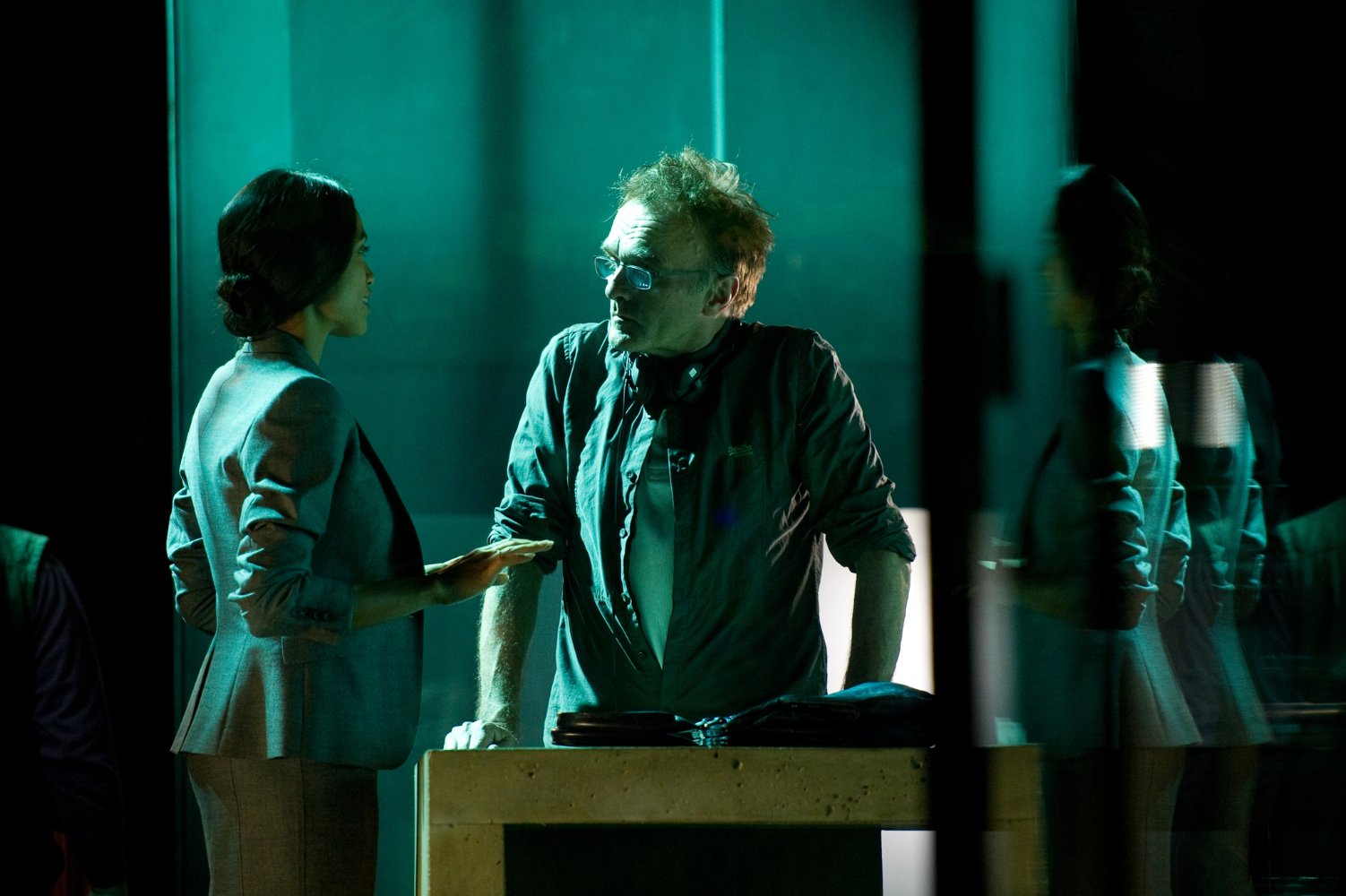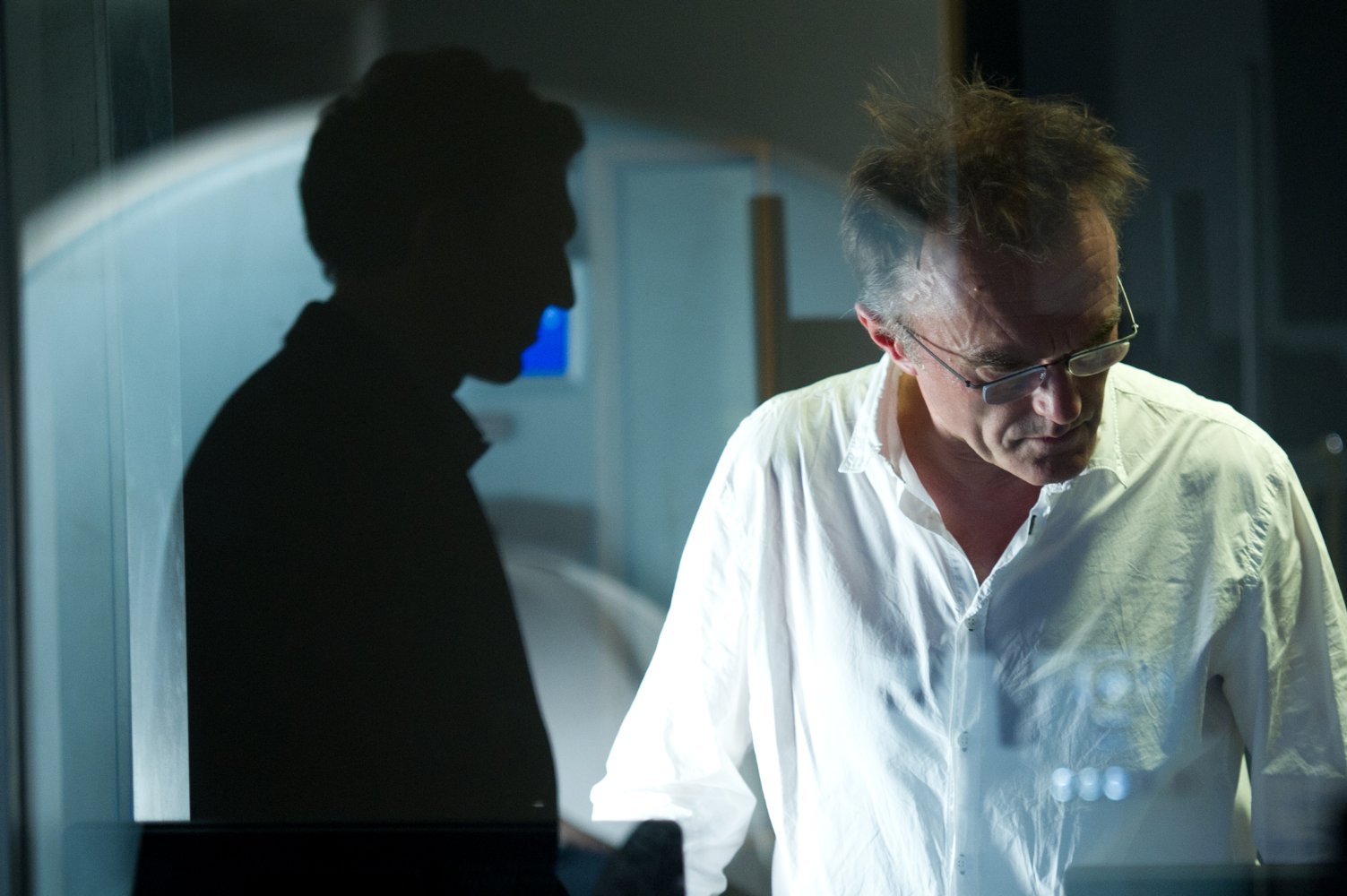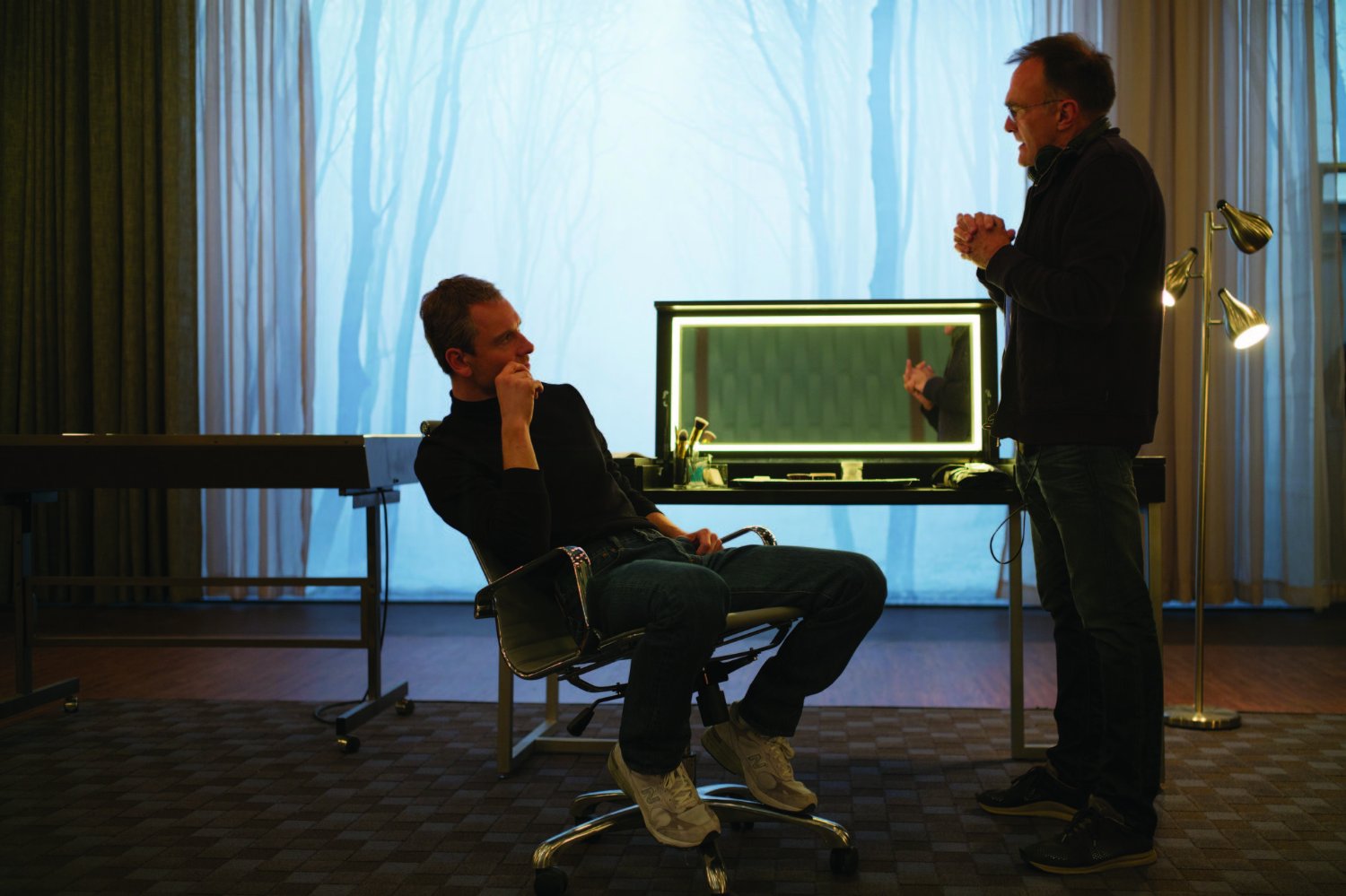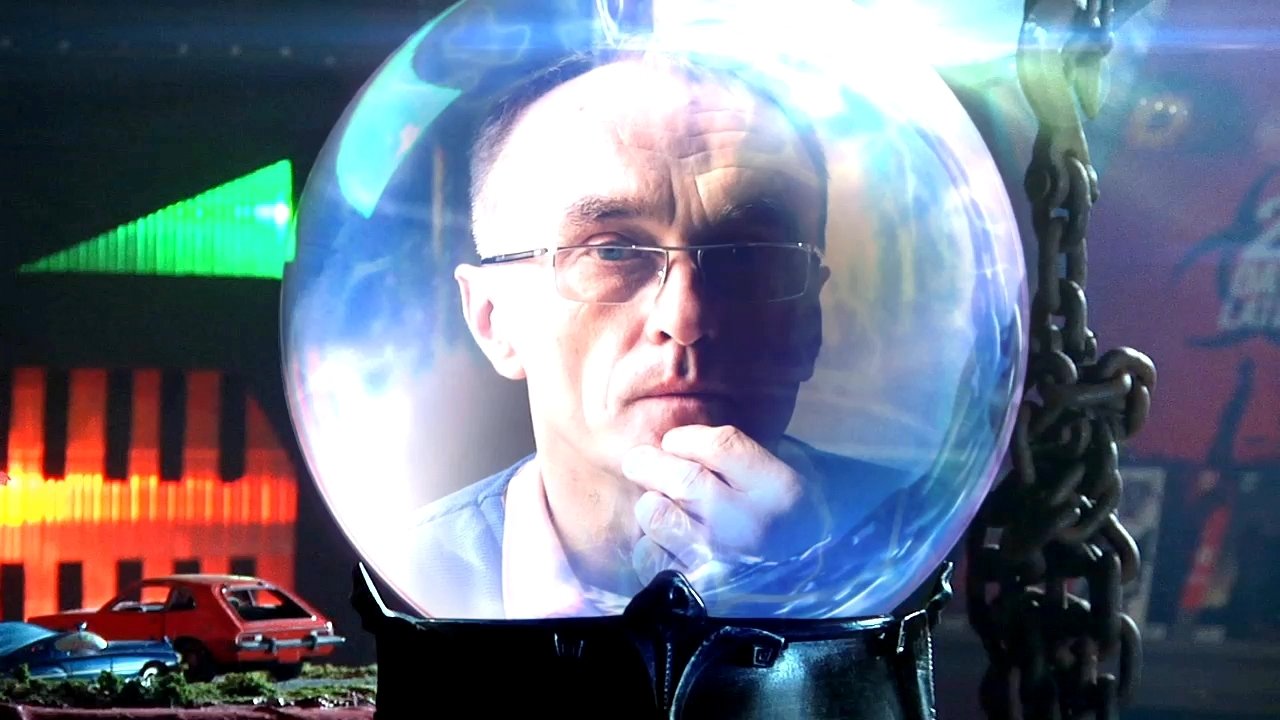
Danny Boyle
Birthday: 20 October 1956, Manchester, England, UK
Birth Name: Daniel Boyle
Height: 182 cm
Danny Boyle was born on October 20, 1956 in Manchester, England as Daniel Boyle. He is a director and producer, known for Slumdog Millionaire (2008), Trainspotting (1996) and 127 Hours (2010).
[on A Life Less Ordinary (1997)] - Originally the script was set in France and Scotland, and we move Show more
[on A Life Less Ordinary (1997)] - Originally the script was set in France and Scotland, and we moved it, foolishly as it turned out, to Utah and Los Angeles. I've always wanted to make popular movies and make the films appeal, and if you're going to do that, you're going to have to, at some point, embrace America. I think we should have made the film more extreme. The original script was intensely violent, I mean hideously violent, and I think in retrospect we should have kept it like that. But we thought, 'That's not compatible with the romance.' But in fact, the clash of things is often the most interesting things about films, where they clash together, where they're not smooth, where they are inappropriate for each other. Hide
Apocalypse Now (1979) fueled my obsession with experiences in the cinema, really, of trying to creat Show more
Apocalypse Now (1979) fueled my obsession with experiences in the cinema, really, of trying to create. There are risks attached to it. You're trying to stretch things, but you are also fundamentally committed to getting as many people to see it is as possible. Hide
[His next project, Sunshine (2007)] We're doing this film Sunshine (2007). In fact, we're casting fo Show more
[His next project, Sunshine (2007)] We're doing this film Sunshine (2007). In fact, we're casting for it in a few minutes actually. It's about a mission to the sun. It's a sci-fi set in space. They're flying a bomb to the sun and the bomb is like the size of Kansas, this immense bomb that they built in space. They're flying it to reignite a section of the sun which is failing, but it's really about a mission that went earlier, seven years earlier, and failed. So it's sort of mystery of what happened. It's quite big at the end, you get to meet the sun. Quite spectacular hopefully. Hide
I don't want to make pompous, serious films; I like films that have a kind of vivacity about them. A Show more
I don't want to make pompous, serious films; I like films that have a kind of vivacity about them. At this time of the year you think about awards and if you want to win one you think you should make serious films, but my instinct is to make vivacious films. Hide
I want my films to be life-affirming, even a film like Trainspotting (1996), which is very dark in m Show more
I want my films to be life-affirming, even a film like Trainspotting (1996), which is very dark in many ways. I want people to leave the cinema feeling that something's been confirmed for them about life. Hide
[on Trainspotting (1996)] - 'Take risks' is the one I got from that. Really take risks. I haven't al Show more
[on Trainspotting (1996)] - 'Take risks' is the one I got from that. Really take risks. I haven't always clung to it but I certainly always return to it. And I love that. That's what people go to the movies for. They don't go to see what's acceptable. John [Hodge] adapted it in a way - it was impossible to adapt, so he didn't try. He sort of was inspired by it and went off. And I love that in adaptations. It's really irreverent to the skill. Hide
[2017 interview, on The Beach (2000)] It is a brilliant idea from Alex Garland's novel, and I don't Show more
[2017 interview, on The Beach (2000)] It is a brilliant idea from Alex Garland's novel, and I don't think I made the best job of it as a director that I could have done - I'd make a much better film of it now. I was rather overawed by the money and the way the film was set up - it was huge and not really suited to what I've learned I'm better at. I love scale and I love films that will play for everyone, and those are the films I like watching more than anything, so James Cameron - I bow down in front of him, absolutely. But I can't handle those kind of budgets; I like having a much lower ceiling that you're constantly battling. Hide
[on Slumdog Millionaire (2008)] - You leave India, but it never leaves you. It's an extraordinary pl Show more
[on Slumdog Millionaire (2008)] - You leave India, but it never leaves you. It's an extraordinary place and you learn about yourself as a person and as a filmmaker. It's an incredibly generous place and it's an incredibly contradictory place. And these contradictions are on a viciously extreme scale: the poverty and the wealth, the nuclear status [but] no toilets - half the population of Mumbai have no toilets. I was trying to capture some of that, really, and we did it by some extreme storytelling. People say, 'How can you go from the deliberate maiming of a child to a big Bollywood song and dance in the end?' Well, you don't try to smooth the path from one to the other. I was trying to put all the elements into the film that belong to the city, that are a part of that city. Hide
The Beach (2000) was a very interesting stepping stone for me to 'Slumdog,' because we went to Thail Show more
The Beach (2000) was a very interesting stepping stone for me to 'Slumdog,' because we went to Thailand and we took a huge crew from the West, I mean a massive crew. When you take a crew like that, you are an invading army. There is no other way you can be seen by the local population. You are this huge, brute force with big elbows coming in. It didn't suit me, that. And it was compounded by the fact that the characters, I didn't get to know them for some reason. I'm a city boy and I find myself making a film about paradise hippies. I tried to shift the film to be more about what Thai people thought of them, but you can't do that with a $55 million film. It's a huge oil tanker. You can't move it around. It just goes steadily on its way. So when I made 'Slumdog,' I took 10 people because I didn't want to have that role of the invading army again. Hide
[on Shallow Grave (1994)] - I was very lucky to get a really tight, 90-minute, taut script. Because Show more
[on Shallow Grave (1994)] - I was very lucky to get a really tight, 90-minute, taut script. Because you kind of don't know what you're doing on your first movie and there's something wonderful about that. You can never get back to that innocence. It's a good thing to start with a thriller, because you're not going to have a lot of money and thrillers don't depend on a lot of money. I say sort of semi-controversially or provocatively, your first film is your best film, always, because it has that innocence about it, about not knowing what you're doing. Hide
[on Steve Jobs (2015)] - I learned more about film acting. Especially these two [Michael Fassbender Show more
[on Steve Jobs (2015)] - I learned more about film acting. Especially these two [Michael Fassbender and Kate Winslet]. A lot of it is their mental preparation. And it's not about slavishly learning lines, though in this case it was, because of the nature of it. But the execution of it is simple, in a way. They just step into it. It was extraordinary. There's no demarcation: 'Stop that fun, everybody! Stop everything! Action!' It was just, like, 'Go!' That was real film acting, and I loved kind of recording it, watching it happen. And something extraordinary happens to Fassbender in act three where he just is the guy. We set out not to make it slavish and gestural with the hair and everything, because that would be boring and we'd be concentrating on that. We just wanted to flow into it. Hide
You don't realize it, but often people are frightened of the director.
You don't realize it, but often people are frightened of the director.
[2017 interview, on T2 Trainspotting (2017)] Normally a sequel you do quite quickly. If you've had a Show more
[2017 interview, on T2 Trainspotting (2017)] Normally a sequel you do quite quickly. If you've had a hit, there's a kind of pressure to do another one quite quickly - a commercial pressure. I don't remember that at the time, and I think none of us would have entertained it anyway; we didn't really want to do anything like that. But then Irvine (Welsh) published this book, Porno, after about seven years - it was a sort of a 10-years-later catch-up, and we obviously considered it then and John Hodge who wrote the screenplay for the first film, did a very decent job adapting it, very professional, and we all looked at it and thought, "It's not good enough", including John. And I realise now why, because when we went back for the last time two years ago to see if we could produce something for the 20th anniversary, he went away and he wrote something much more personal and quite painful in certain respects about himself and about us as well, about the aging process and you taking account, taking stock really. When he sent it to me, I just sent it straight to the actors because I knew they'd do it because it was valuable and personal, it had something to say - it wasn't just a rehash or a pastiche or a replica, it was something that had its own integrity, though it does speak to the other film, they do talk to each other in a way, but not as a traditional sequel might do. Hide
[on Millions (2004)] - It felt very personal, even though it's not a script I wrote. Frank [Cottrell Show more
[on Millions (2004)] - It felt very personal, even though it's not a script I wrote. Frank [Cottrell Boyce, the screenwriter] and I were both brought up very religiously but we were both very imaginative. It was probably a reaction to the excesses of 28 Days Later... (2002), to find a different mood, a different tone from that. You've got to set challenges to see if you can do it. The most obvious scene in it that was missing was, there was never any scene with his mom, and I said to Frank, 'You've got to write a scene with his mom.' He didn't want to but he wrote this scene and it's the most beautiful little scene. You learn sometimes that the most obvious fucking thing is the thing we need. And don't try to avoid it, because sometimes you get all wrapped up in subtlety, but sometimes it's the most obvious thing that you need to do. Hide
What I've always wanted to do is to try and make it look like $100m but it doesn't cost that - I fin Show more
What I've always wanted to do is to try and make it look like $100m but it doesn't cost that - I find that really liberating. Hide
I think I'm better at making films on my home turf, really. You learn from experience and I've learn Show more
I think I'm better at making films on my home turf, really. You learn from experience and I've learnt that through The Beach (2000). I love big movies, like Gladiator (2000), but I'm better at smaller films. Hide
[on 28 Days Later... (2002)] - It was wonderful to work on digital. I'm very proud of the fact that' Show more
[on 28 Days Later... (2002)] - It was wonderful to work on digital. I'm very proud of the fact that's the first proper widely distributed release on digital, and on a very inferior digital format. It suited the guerilla nature of the story and that was cool, doing it like that. I began to learn how to contradict film culture just in the way films are made. I got much more into doing it in what you would call an unprofessional way. I'm not a big fan of the tautly professional films that do things 'the right way.' I think it's not a great spur to creativity sometimes. Hide
[on Sunshine (2007)] - You go into it, you think, 'It's funny, most directors only ever seem to make Show more
[on Sunshine (2007)] - You go into it, you think, 'It's funny, most directors only ever seem to make one space movie. I wonder why that is.' And then you make one and you know why: They are merciless, the demands on you. More than any other genre, it's really narrow. Your options as a storyteller are incredibly limited, plus the fact you've got these technical limitations you've got to get right, every detail: how your shoelace behaves in weightless conditions, how your hair behaves. The precision you have to bring is migraine-inducing, and the patience you have to have while you wait for CG. If I ever did another movie like that, I would take a break during editing. Editing is such an organic thing; you keep editing, even though you should have stopped. What you're really doing is waiting for these CG effects to arrive and we should have taken six months off. Because what you're doing is cutting the film and there are huge swaths of it you haven't got. But the fact that they're not there affects how you cut after it, so actually you're distorting the film. I'd certainly advise anyone about big CG to build in a break. Hide
[on The Beach (2000)] Leo [DiCaprio] is an amazing movie star because he's very director-oriented. W Show more
[on The Beach (2000)] Leo [DiCaprio] is an amazing movie star because he's very director-oriented. When he commits to a project he just goes, "We do whatever this guy wants," and that's it. It's amazing how he has supported Scorsese and re-birthed Scorsese, if you like. That is a great definition of a movie star. That's what he's like. He's a fantastic guy. He wants to have a big relationship with the director. He uses his power to bat away the studio. He would say to me, "Do you want to shoot that five-day sequence again? We can do it again if you want?" That's what he uses his power for. He has very European taste. He wants to smuggle European art films into the American market. When I look at it, I remember thinking how much I didn't like these people, and that's really tough when you're directing a film. I liked the actors, we had a great time, but I didn't like the characters. I'm an urban person. I love cities and I made that film about a load of hippies in the countryside, nothing in common with them at all. You're there making the film and you think, "I can't relate to these people at all. What are they doing here? I am so bored." I don't like these people very much and I don't approve of what they're doing so we tried to make the film critical. But of course you've taken $55m. You can't make a sociocritique of these invaders for $55m. If you take $15m you can, but you've taken $55m so there's got to be a romance and it needs to feel like paradise. It needs to sell itself like that. Hide
[on Sunshine (2007)] It's very disappointing we didn't get more people in to see it. It's strange, t Show more
[on Sunshine (2007)] It's very disappointing we didn't get more people in to see it. It's strange, though. I've had people pass me and say, "I saw Sunshine and really liked that." We tried to make it for very little money, but we tried to make a big film. I love that ambition. I think it was probably too close to the films that inspired it. I did say this at the time - with space movies, it's a very narrow corridor you are working in, it's very hard to be inventive in it. Your choices are very, very specific. You have to shuffle it very, very cleverly. So I think people thought it was too like those other films, and it clearly does owe a lot to those other films, but when you see it, there is a side of it that does have its own originality as well. I'm proud of it. It was pretty exhausting doing it, and I wouldn't do another one. Not for a while anyway. Hide
I think Ken Loach is an extraordinary filmmaker. It is so effortless what he does. The effortlessnes Show more
I think Ken Loach is an extraordinary filmmaker. It is so effortless what he does. The effortlessness with which he can get some stuff is just extraordinary. You may not like his concerns as a filmmaker, that they are political or whatever, and you may actually think that the films should be more exciting, they should have more dramatic climaxes, but he is extraordinary. You think about The Godfather (1972) and that is shot in Ken Loach's fashion, in a way. It's effortless. That's one of the things about Coppola. You never had any fancy angles with Coppola. You don't get any of that Scorsese stuff. Those filmmakers are the real craftsmen, the real masters. They don't need the camera to do anything for them, the whole thing is set up - the camera just records it and you witness it. Whereas I tend to use the camera as part of the experience, the actual point of view is part of the experience. They didn't want to do that. They wanted something much more like looking at a painting. The camera is much more reliable and still. It won't confuse you, you just witness what is within it. Hide
[on 127 Hours (2010)] - The same as this one [Steve Jobs (2015)], I learned that just because someth Show more
[on 127 Hours (2010)] - The same as this one [Steve Jobs (2015)], I learned that just because something isn't factually correct, doesn't mean it's not truthful. That was the experience with Aron Ralston. Because he had been through the experience and had a photographic memory about it, everything had to be exactly as he'd seen it and experienced it. Obviously you trust that to a degree. It's a first-person testimony. How could you not? But actually in reality, making a film, if you just make the facts, it doesn't necessarily work and it doesn't look truthful. And it's because something else happens in art and film, which is that you have to represent truth rather than photograph it. Hide
[on Shallow Grave (1994)] When you make a film for £1m, we were literally selling furniture to pay Show more
[on Shallow Grave (1994)] When you make a film for £1m, we were literally selling furniture to pay for film stock by the end. We were flogging off sofas because we'd finished using them and using the money to buy film stock. I think your first film is always your best film. Always. It may not be your most successful or your technically most accomplished, whatever. It is your best film in a way because you never, ever get close to that feeling of not knowing what you're doing again. And that feeling of not knowing what you're doing is an amazing place to be. If you can cope with it and not panic, it's amazing. It's guesswork, inventiveness and freshness that you never get again. To prove it, watch Blood Simple. (1984) again. The Coen brothers are geniuses, but they never made a film as good as Blood Simple. I don't care what you say. So in a funny way, your first film is always your best film, so there you go. Hide
When I was making Sunshine (2007), it suddenly struck me: No director has ever gone back into space, Show more
When I was making Sunshine (2007), it suddenly struck me: No director has ever gone back into space, with the exception of franchise directors. If you look at the record, you'll find that's true. I now know why. Hide
[on 127 Hours (2010)] - This is a film about how precious life is. And it's only precious because of Show more
[on 127 Hours (2010)] - This is a film about how precious life is. And it's only precious because of other people. It's not precious in itself, which is what we sometimes think - we think the will to survive is an individualistic thing. ... But it's actually connected to other people. And that's what the life essence is really about - it's always about other people, even in the loneliest places. Hide
I learned that what I'm better at is making stuff lower down the radar. Actually, ideally not on the Show more
I learned that what I'm better at is making stuff lower down the radar. Actually, ideally not on the radar at all. Hide
That's what's wonderful about actors sometimes, is that's who we watch on the screen... Some of us a Show more
That's what's wonderful about actors sometimes, is that's who we watch on the screen... Some of us are interested in directors, but really the vast majority of us are interested in actors. You experience the films through the actors, so they're all locked into your imagination in some kind of layer of fantasy or hatred or wherever they settle into your imagination. They make much better fodder for this kind of thing [interviews] than a director. Hide
Trance (2013) was interesting because it was our relaxation. It was born out of doing the Olympics, Show more
Trance (2013) was interesting because it was our relaxation. It was born out of doing the Olympics, which was hugely insane and stressful. So we made what we wanted to be a fun thriller. But it's a pretty tortured idea and I think that comes out of the fact that our minds were tortured by the responsibility of doing the Olympics. None of the dark stuff could go into the Olympics, because it's a family show, obviously. So it went into 'Trance.' I learned that the dark stuff is always there. You might be doing the wholesome family entertainment as your day job, but at night the dark stuff is still there. Hide














